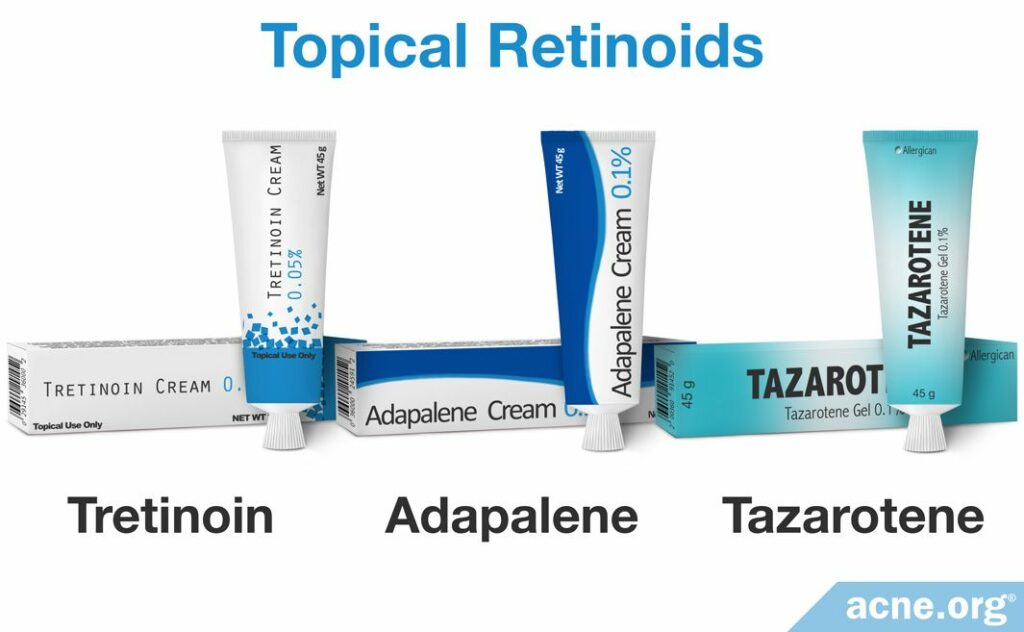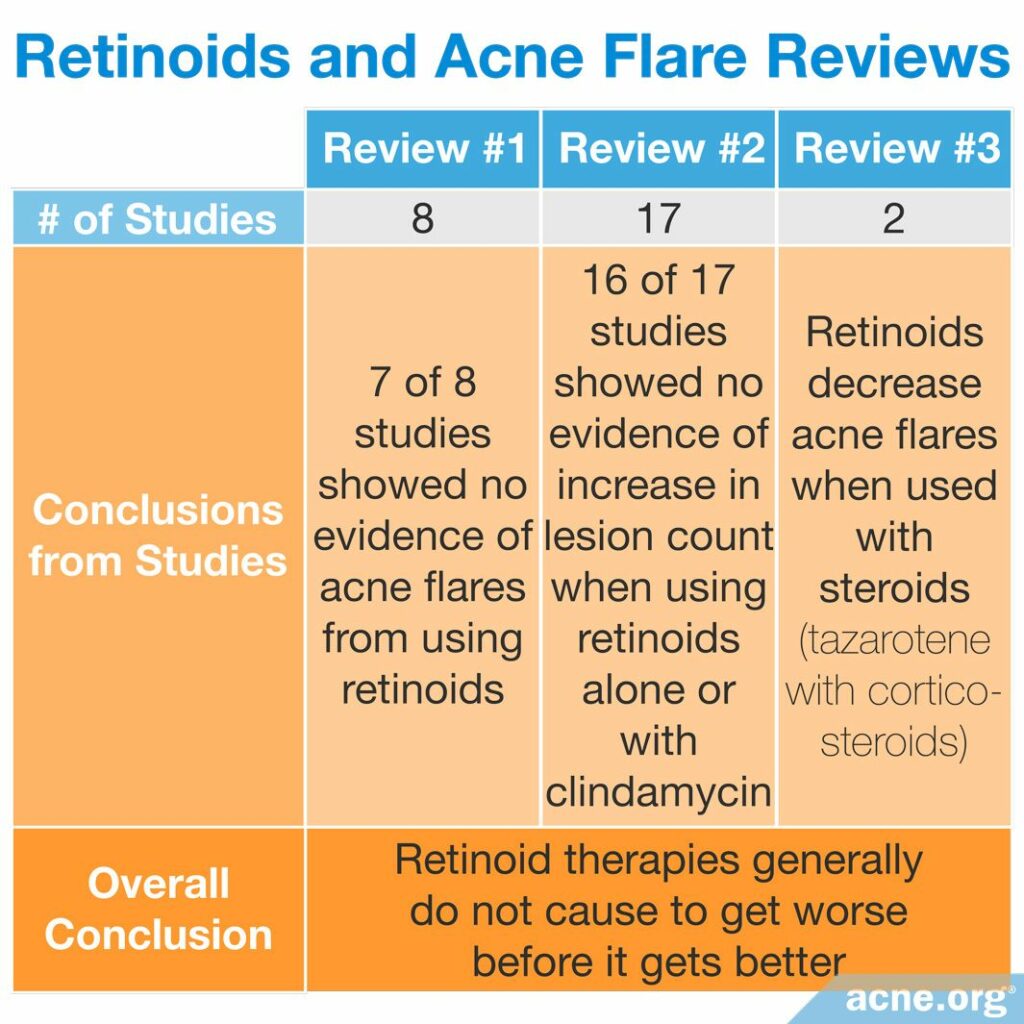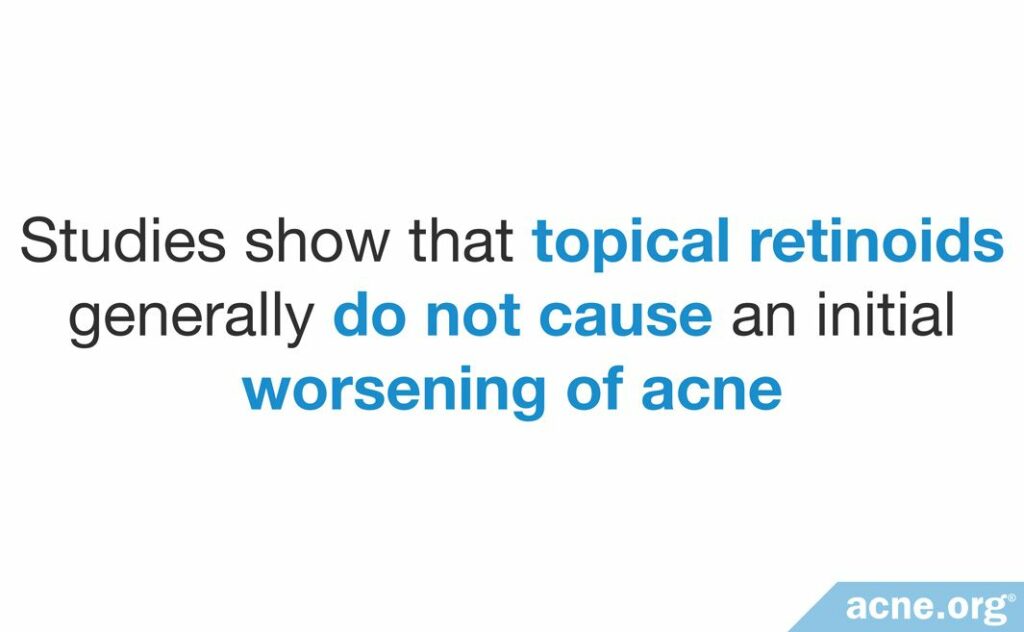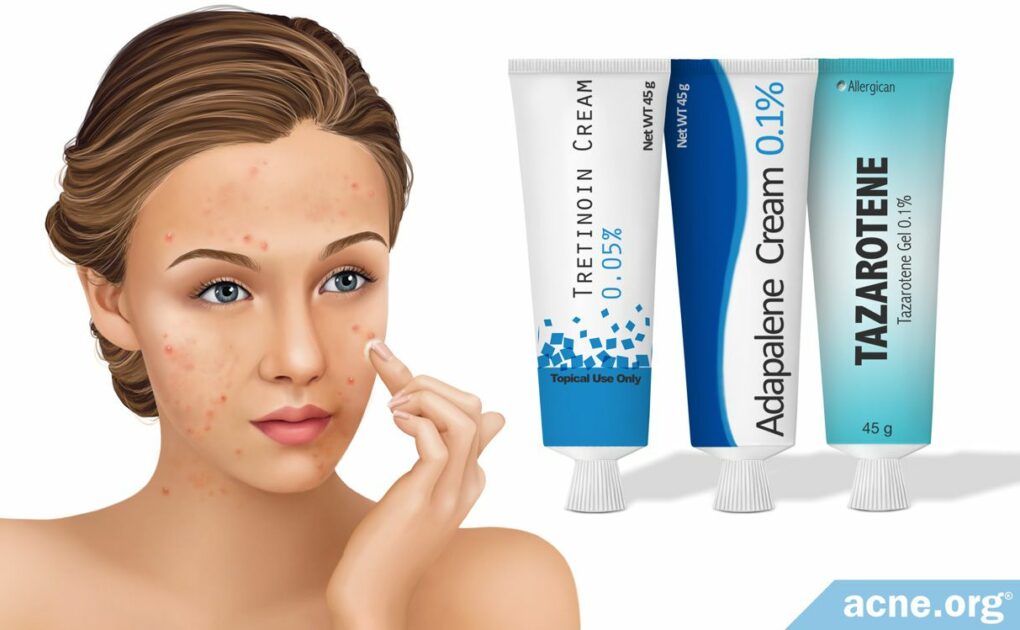Turns Out That This Is Not the Case for Most People

The Essential Info
Have you ever heard that your skin will get worse before it gets better if you start using one of the three topical prescription retinoids (tretinoin, adapalene, tazarotene)? This rumor abounds.
Even dermatologists will often warn patients to expect an initial flare of acne when starting on a retinoid. However, research has shown that retinoid therapy does not cause acne to worsen initially.
So, there is no need to worry about an initial flare. However, where your worry might be more founded is that topical retinoids do not completely clear acne. In studies, they show only 30-70% clearing of acne. So, if your dermatologist prescribes a topical retinoid to you, make sure to ask him/her what other treatments can be combined with it to achieve clear skin.

The Science
Topical retinoids and Acne

Retinoids are vitamin A derivatives that doctors often prescribe alone or in combination with other medications to treat acne.1 The three FDA-approved retinoid treatments are tretinoin, adapalene, and tazarotene. Each of the three works by helping to unclog pores and reduce inflammation, and come with slight differences in activity in the skin and tolerability.2-5
No matter which retinoid is prescribed, dermatologists frequently warn patients that using any of the three retinoid therapies may cause initial worsening of acne. But as we will see, the overwhelming preponderance of the evidence shows us that this is not true.
Retinoids and Acne Flares – The Evidence
Scientists have performed a number of studies to investigate the claim that retinoid treatment causes an initial acne flare, which is usually assessed as an increase in inflammatory lesions of 10 – 20% or greater versus baseline (original skin condition) in the first weeks of treatment.7
- One review article comparing eight independent retinoid studies found no evidence of flare, as only one of the eight studies showed a slight flare during early treatment.6
- A second review analyzed 17 clinical trials for evidence to support the same claim. This review concluded, “[T]here was no evidence of an increase in total lesion count” within the first two weeks of treatment.7
- One research study, however, showed evidence of a slight flare when patients used tretinoin for two weeks. These flares appeared only in individuals with mild acne and were not observed in patients using a combination therapy of tretinoin and clindamycin (a topical antibiotic), suggesting that using both medications together eliminated the small flare.8
- Another study even found that retinoids could be used to decrease acne flares when taken in combination with steroids, which are known to induce acne flares. Patients in this study took tazarotene with corticosteroids, and scientists observed that the addition of tazarotene reduced steroid-induced flares from 86% to 12%.9

When taken together, the numerous studies that scientists have performed present a clear picture that retinoid therapies generally do not cause an initial worsening of acne.
Conclusion

Both doctors and lay people are responsible for spreading the prominent myth that retinoid therapy will cause acne to get worse before it gets better. This is simply not borne out by the evidence. You should not expect your acne to flare when you begin retinoid treatment. On the flip side, you should also not expect your acne to immediately and dramatically improve because topical retinoids usually do not clear the skin on their own. Instead, when you start using a topical retinoid, your skin will likely remain the same and then begin to gradually, and only partially, improve.
References
- Sorg, O. & Saurat, J. H. Topical retinoids in skin ageing: A focused update with reference to sun-induced epidermal vitamin a deficiency. Dermatology 228, 314 – 325 (2014). https://www.ncbi.nlm.nih.gov/pubmed/24821234
- Hsu, P., Litman, G. I. & Brodell, R. T. Overview of the treatment of acne vulgaris with topical retinoids. Postgrad Med 123, 153 – 61 (2011). https://www.ncbi.nlm.nih.gov/pubmed/21566426
- Zaenglein, A. L. et al. Guidelines of care for the management of acne vulgaris. J Am Acad Dermatol 74, 945 – 973 e933 (2016). https://www.ncbi.nlm.nih.gov/pubmed/26897386
- Cunliffe, W. J. et al. A comparison of the efficacy and tolerability of adapalene 0.1% gel versus tretinoin 0.025% gel in patients with acne vulgaris: a meta-analysis of five randomized trials. Br J Dermatol 139 Suppl, 48 – 56 (1998). https://www.ncbi.nlm.nih.gov/pubmed/9990421
- Katsambas, A. & Papakonstantinou, A. Acne: Systemic treatment. Clin Dermatol 22, 412 – 418 (2004). https://www.ncbi.nlm.nih.gov/pubmed/15556728
- Costa, C. S. & Bagatin, E. Evidence on acne therapy. Sao Paulo Med J 18, 193 – 197 (2013). https://www.ncbi.nlm.nih.gov/pubmed/23903269
- Leyden, J. J. & et al. Effects of Topical Retinoid Therapy on Acne Lesions : A Psychometric Assessment. Cutis 90, 46 – 50 (2012). https://www.ncbi.nlm.nih.gov/pubmed/22908733
- Leyden, J. J. & Wortzman, M. A Novel Gel Formulation of Clindamycin Phosphate – Tretinoin Is Not Associated With Acne Flaring. Cutis 82 (August), 151 – 156 (2008). https://www.mdedge.com/dermatology/article/67730/acne/novel-gel-formulation-clindamycin-phosphate-tretinoin-not-associated
- Guenther, L. C. Optimizing Treatment with Topical Tazarotene. Am J Clin Dermatol 4, 197 – 202 (2003). https://www.ncbi.nlm.nih.gov/pubmed/12627995
